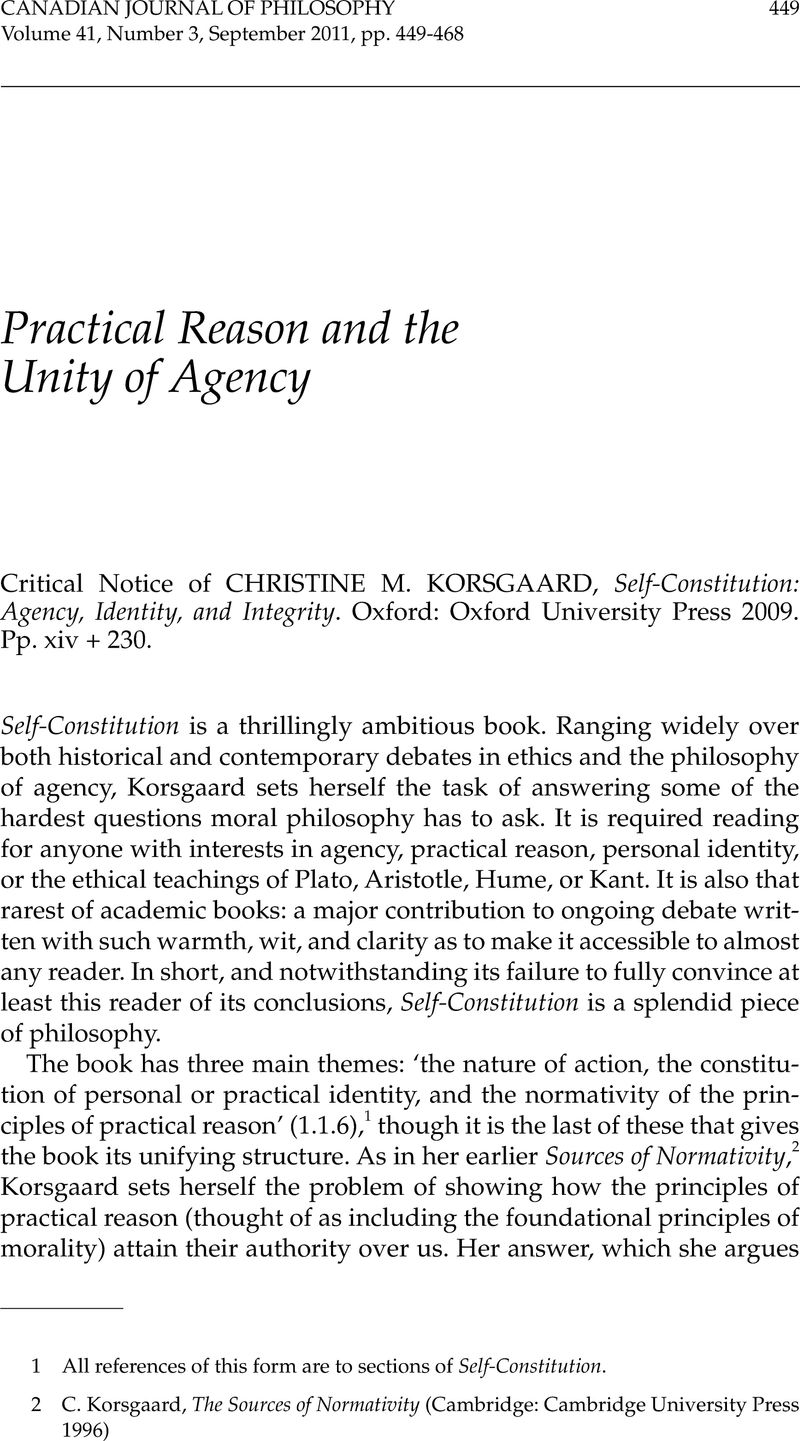Article contents
Practical Reason and the Unity of Agency
Review products
Published online by Cambridge University Press: 23 December 2019
Abstract

Information
- Type
- Critical Notice
- Information
- Copyright
- Copyright © The Authors 2011
References
1 All references of this form are to sections of Self-Constitution.
2 Korsgaard, C. The Sources of Normativity (Cambridge: Cambridge University Press 1996)CrossRefGoogle Scholar
3 Nozick, R. Philosophical Explanations (Cambridge, MA: Harvard University Press 1981), 4Google Scholar
4 A near identical statement of the argument appears in her paper ‘Self-Constitution in the Ethics of Plato and Kant,’ in The Constitution of Agency (Oxford: Oxford University Press 2008), 123-4. Both are developments of a line of thought that first appeared in The Sources of Normativity, 225-33.
5 Constitution of Agency, 5
6 Frankfurt, H.G. ‘On the Necessity of Ideals,’ in his Necessity, Volition and Love (Cambridge: Cambridge University Press 1999), 111Google Scholar
7 Nor does it, being a mere analogy, constitute any independent argument for Korsgaard's claim that the categorical imperative is a constitutive standard of agency.
8 See also 56-60 of her ‘The Normativity of Instrumental Reason,’ in The Constitution of Agency.
9 That is to say, the democratic soul is not a particularistic willer. ‘Someone who takes “I shall do the things I am inclined to do, simply because I am inclined to do them” as his maxim has adopted a universal principle, not a particular one: he has the principle of treating his inclinations as such as reasons’ (4.4.3).
10 ‘… there's no general reason to suppose we can think of everything in advance. When we adopt a maxim as a universal law, we know that there might be cases, cases we haven't thought of, which would show us that it is not universal after all. In that sense we can allow for exceptions. But so long as the commitment to revise in the face of exceptions is in place, the maxim is not merely general. It is provisionally universal’ (4.4.2).
11 Parfit, D. Reasons and Persons (Oxford: Oxford University Press 1986), 327–8CrossRefGoogle Scholar
12 Korsgaard observes that ‘a private reason is like a toothbrush. They are all pretty much alike, but we must each have our own’ (9.4.5). So when I take myself to be bound by a private reason, universalisability may commit me to taking you to be bound by a similar reason of your own. And in failing to act on that reason you manifest a type of irrationality that I am bound to recognize as such — not because you fail to act on something that has normative force for me, but because you fail to act on something that has normative force for you.
- 2
- Cited by

